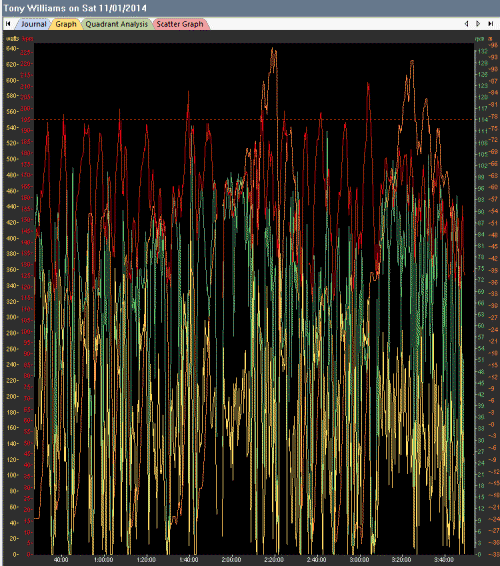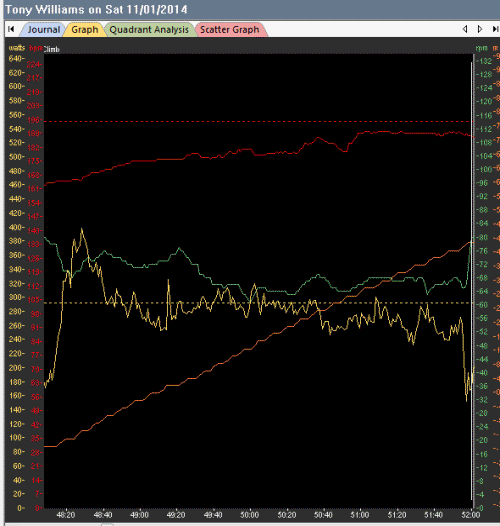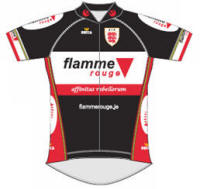FAQ ~ Climbing Heart Rate
Great Question from George Coffey in Sacramento ~ Is there an optimum HR as a percentage of threshold would you recommend for climbing efforts? Should you maintain a steady HR by slowly backing off on effort, or maintain the same effort and have your HR climb throughout the effort, stopping at what point?
 For me, you can't really prescribe heart rate for the
Climbageddon Sessions,
as everyone is different. We all have an "optimum" climbing
rate, but it's not the same percentage of max (or capacity) as the
riders around us.
For me, you can't really prescribe heart rate for the
Climbageddon Sessions,
as everyone is different. We all have an "optimum" climbing
rate, but it's not the same percentage of max (or capacity) as the
riders around us.
Heart rate is a response to a stimulus, not the stimulus itself. Everyone's heart has a different resting rate, maximum rate, stroke volume and cardiac capacity.
Then there's lung volume, oxygen uptake, blood oxygen saturation, mitochondria density, levels of capillarization, etc, etc. It's impossible to know this for individual riders.
But if we know FTP, and significant power and time markers, we can be more prescriptive in our setting of climbing wattage levels.
Having said all of that, it all depends at what altitude you are climbing! A 500 metre elevation change in Jersey, is significantly different to that in Colorado!
Here's my Climbageddon 15 trace from January 2014. Fifteen climbs, nothing (due to geographical restrictions!) over 100 metres, all over-geared and ridden slow and steady for muscular endurance, not speed.

The red dotted line is drawn at 195 bpm, which is my average max heart rate for short, sharp, climbs. The ride average heart rate was 159 bpm, and my max for the day was 229, not far short of my 234 bpm max. My resting heart rate this week has been 48 bpm.
As you can see, from the single climb trace below, it's impossible to predict a climbing heart rate as this isn't "linear" to output. The dip at the three-quarter mark is a false flat, so I eased off for ten seconds to "take a run at the peak".
For this four minute climb, the average was 180 bpm, with a minimum of 163 and a max of 190.
To try and predict an overall individual climbing heart rate percentage for something with so many variables is a no-win situation.

Obviously the length of the climb will have a bearing on the average sustainable heart rate. While 190 bpm is okay for a four minute climb, it wouldn't be good for Alp D'Huez. Although I have averaged 185 bpm for the Tourmalet and Galibier, so it all depends on the individual really.
The objective, is to get to the top of the climb; as efficiently and as effectively as possible, the heart rate will be what it will be. But you will know very quickly if you've got it wrong!
But to answer the question! Long climbs, back off, let your heart rate pace you. Short climbs, push the boundaries; if you crack, you crack, at least you will learn something new and you won't have to suffer for too long to find out.
There are three factsheets that will bring this all together for you, starting with measuring your heart rate accurately...








